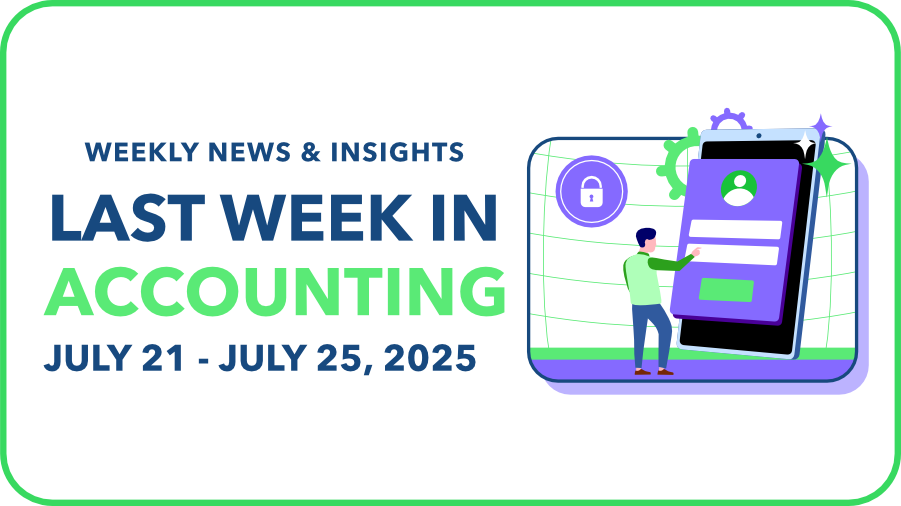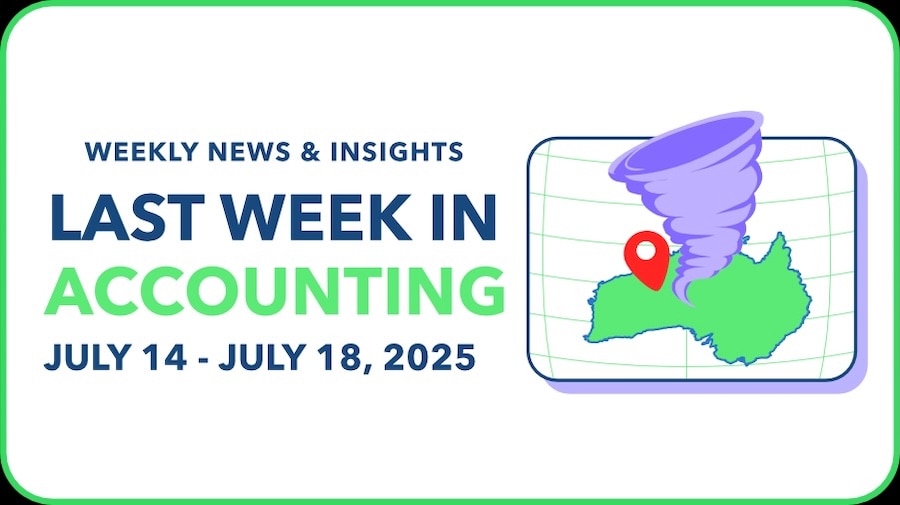🔍 Top headlines
AICPA and CIMA launch business resilience toolkit for finance leaders
The AICPA and CIMA have released a Business Resilience Toolkit designed to help finance leaders navigate economic uncertainty, geopolitical tensions, and rapid technological change. The resource brings together frameworks, diagnostic questions, and practical tools to support organizations in three areas: scanning for emerging risks, gauging operational impacts, and adjusting strategy. It addresses several themes, including economic and policy risk, integrated thinking, and tracking performance drivers, all with an eye toward quicker, more informed decision-making. Tom Hood, business growth and engagement executive vice president at AICPA-CIMA, noted that with “record numbers of businesses failing or under financial pressure,” financial expertise can often be the dividing line between survival and failure. The toolkit reflects a growing expectation that accountants and finance professionals won’t just report on conditions, but also help shape the response, offering a more strategic lens on risk, resilience, and opportunity in an unpredictable landscape.
Global accountants are showing an uptick in confidence—but risks loom large
Accountant sentiment showed its first lift in more than a year, according to the latest ACCA–IMA Global Economic Conditions Survey, but the mood remains fragile. Q2 2025 data showed modest gains in North America and Western Europe, offset by a sharp confidence drop in Asia Pacific, as geopolitical instability rose to the top of the global risk agenda for the first time in the survey’s history. Cost pressures eased slightly, though they remain elevated in key markets, and new orders and capital spending softened, but stayed near historical averages. The survey paints a mixed picture: the global economy isn’t on the brink, but ongoing trade tensions, tariffs, and policy uncertainty continue to cast a shadow over the outlook. For those tracking business health, the report highlights a subtle shift from pure economic worry toward a broader unease over how external shocks ripple through operations and strategy.
NASBA and AICPA approve 120-hour CPA pathway in major licensing shift
In May, the AICPA and NASBA approved amendments to the Uniform Accountancy Act (UAA) to create a new CPA licensure pathway: 120 credit hours, two years of experience, and the CPA Exam. Now, with the ninth edition of the UAA officially released, that pathway has moved beyond policy framework into something fully codified, moving what had been a patchwork of state‑level experiments into a national model for lawmakers and regulators. The update is significant because it signals to all 55 US licensing jurisdictions that they can adopt the change with consistency, while keeping the 150‑hour route intact for those who prefer it. The UAA revisions also expand cross‑state mobility and reinforce practice privileges for CPAs licensed under previous standards. Together, these changes formalize a shift that’s been brewing for years, and mark a coordinated effort to ease the profession’s pipeline challenges while maintaining regulatory rigor.



